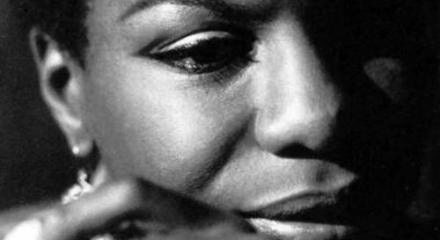Nina Simone was way ahead of her time. “What Happened, Miss Simone?” the new Netflix documentary – that went up on the site this weekend – clearly depicts this fact. Oscar nominated, Liz Garbus and producer/music industry vet, Jayson Jackson have come up with a tale of art, power, pain, and sacrifice that has lit up the independent film festival circuit and is a must see.
Simone was a bi-polar, bi-sexual, genre defying artist/activist, whose career arc began as a child prodigy in the Black church. While growing up in her hometown of Tryon, North Carolina, Jim Crow was master of all he purveyed. But in spite of this, Nina’s obvious talent attracted the attention of white patronage and tutelage. Eventually, aspirations were stoked within the young artist’s soul for a career in classical music. The dream of glory on the stages of the great European concerts halls, playing the compositions of Beethoven, Bach and Brahms was dashed, when racist thinking prevented her acceptance into a prestigious Philadelphia based music school.
Young Nina found hope and opportunity nonetheless, and began to pursue a career as an Atlantic City nightclub singer. Notoriety that she received from this period led to a recording contract and the release of her smash rendition of Gershwin’s standard “I Loves You Porgy” and a stunning debut at the Newport Jazz Festival. What then appeared to be a promising career as a jazz influenced standards singer was redirected by the bombing death of four little girls in a Birmingham, Alabama church, the assassination of Mississippi activist, Medgar Evers and Nina’s eventual participation in a civil rights movement in full swing.
With all of her standing in the international creative community, she chose to fight for the rights of her people. Nina’s commitment to change, to justice and to better may have caused her to lose millions. The radicalized Simone performed for marchers on the eve of the Selma protests, hung out with James Baldwin, Lorraine Hansberry, and Langston Hughes and became the next door neighbor of Malcolm X. Simone’s defiant expression of Afrocentric creativity not only planted seeds for the eventual emergence of hip hop, but found supporters and followers in a nascent feminist movement that has flowered into a serious presidential candidacy for Hillary Clinton.
Last February, when John Legend received his Best Original Song Oscar for “Glory,” his collaboration with Common, from the soundtrack of “Selma,” he both quoted and thanked Nina Simone when he said, “It’s an artist’s duty to reflect the times in which we live.” Through his music and his work with the Black Lives Matter Movement, Legend has proven to be a creative and political son of Nina Simone’s that she might have been proud of. Along with Talib Kweli, J. Cole, Jigga and Q-Tip, Legend has risked commercial acceptance by raising his voice for justice.
The recent events in Ferguson, Staten Island, Cleveland and Charleston remind us that the struggle that Simone was engaged in is not over, and that lessons from the past must inform our fight for a better present and a more hopeful tomorrow. Revolutionary activist, Angela Davis has contributed liner notes to a forthcoming compilation album, “Nina Revisited: A Tribute To Nina Simone” that has been inspired by the film, and that will feature five new vocal performances from Ms. Lauryn Hill. Davis wrote this of Simone, “I first heard Nina Simone’s music as a high school student in the late 1950’s in New York. Although her name did not yet by itself evoke black freedom, as when she later sang “All I want is equality/ For my sister, my brother, and me,” I do not think that I was alone in feeling that something in her phenomenal voice beckoned us toward the battle to come. It was from Nina Simone that we learned, for example, how not to interpret the tactical importance of nonviolence as mitigation of our collective anger against racism. Thus “Mississippi Goddamn” became as important an anthem of the Civil Rights Movement as “We Shall Overcome.”
On this last weekend of Black Music Month, and while we fight to reform an unjust system that must be reminded that Black Lives Matter, it might be instructive to watch “What Happened, Miss Simone?” and remember how much further we must travel before we overcome and how hard Nina Simone fought to get us here.
